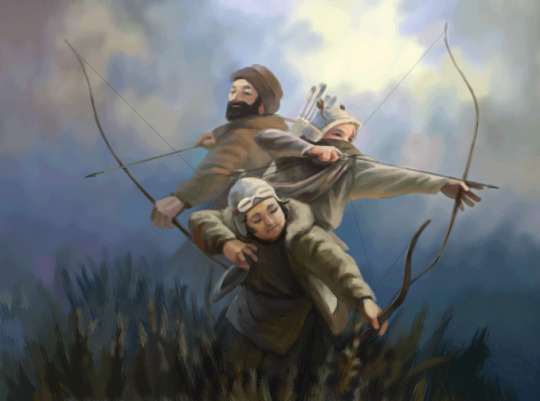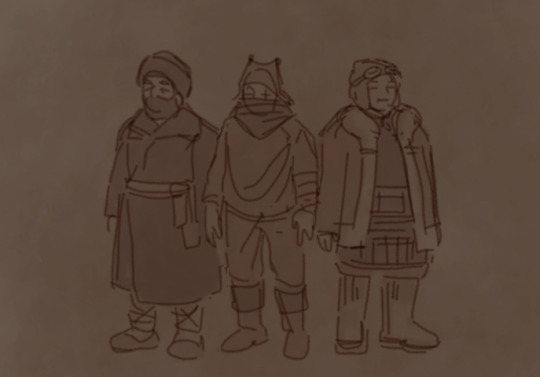#innokentiy
Explore tagged Tumblr posts
Text





Береги́сь автомоби́ля / Beware of the Car Eldar Ryazanov. 1966
Bus Stop Ulitsa Varvarka, 14, Moskva, Russia, 109012 See in map
See in imdb
#eldar ryazanov#beware of the car#Береги́сь автомоби́ля#moscow#russia#bus stop#movie#cinema#film#location#google maps#street view#innokentiy smoktunovskiy#olga aroseva#bus#1966
9 notes
·
View notes
Text
Just a POST to list my favorite Mozarts rep (it's not a ranking)
1 Tom Hulce, Amadeus


2 Lino Guanciale in Io, Don giovanni


3 Ben Lloyd-Hughes, Genie in The House

4 Motsu, Classicaloid


5 FGO


6 Mattia Cavallari, Mozart 2.0


7 Mikelangelo Loconte, MLOR


8 Innokentiy Smoktunovskiy, Моцарт и Сальери 1962


9 Il piccolo mozart/Little Amdeus


10 Wolfango Amedeo-Mozart è stato gestitio male, zecchino d'oro


11 Mozart, Christoph Bantzer

11 Mademoiselle Mozart manga+ musical


12 Mozart, classi9


13 mozart das musical

14 mozart twosetviolin

15 mausart/geronimo mozart


16 mozart in prague

Mozart, Luzzati

#amadeus#mozalieri#mlor#mozart l'opera rock#mikelangelo loconte#tom hulce#luzzati#twosetviolin#classicaloid#mozartloid#motsu#fgo#fate grand order#fgo mozart#classi9#lino guanciale#ben lloyd hughes#geronimo stilton#mademoiselle mozart#mozart das musical#asumi rio#hana yuuki#takarazuka og#Innokentiy Smoktunovskiy#Моцарт и Сальери 1962#Christoph Bantzer#mozart in prague
6 notes
·
View notes
Text
my gaoler innokentiy !

#flight rising#frfanart#flight rising art#flight rising fanart#fr gaoler#flight rising gaoler#gaoler dragon#art#fanart
109 notes
·
View notes
Text

"Archers" by Koriakin Innokentii as Team Canada for @shepscapades hc character design week 3 prompt (no, im not late, everyone is just faster! >.<)
i went to his exhibition in 2021 with my mom and it was really great :D his works have the most familiar warmth vibe to me and im just "ghgfhhdfjj 👍🏼💥!!!" about it. You can check his ig page if you wanna see more!


original (there's no quality scan of it u_u and I couldn't figure out how to download from ig...) and rough designs i guess? thought process in alt text
#aaahaha i hope i did the original justice but at the same time i know its not that bad “:D right..?#i know it said famous style or famous piece but you know what i want this guys work be famous fr#fun fact i have a calendar with his painting print on it! (and theres also like a shaman's rambles about the years future for half the print#(yeesh xD well at least the painting is awesome!)#it was really fun to draw btw i enjoyed it! :D im not the strongest at rendering so having a reference was pretty good id say!#vintagebeef#pauseunpause#ethoslab#team canada#shepshermitdesign23#artstump
430 notes
·
View notes
Text

"Myself!" by Natalya Konchalovskaya, illustrated by Kesh (Innokentiy Shaposhnikov), 1946
139 notes
·
View notes
Text


Unknown Pathologic Characters round 1, side A, match 6: Yaklakh versus Innokentiy Savvovich Pestitskiy
Yaklakh Origin: Pathologic (game text) Description: Saburov’s head patrolman and a former Termitary taskmaster, who destroyed the Town’s water supply based on Lara’s comment about potential contamination. Returned to the Termitary (with Aspity’s help) while fleeing the Bachelor’s anger.
Innokentiy Savvovich Pestitskiy Origin: KRI 2005 Description: A professor of lethal fevers, chairman of the state medical college. He investigated an outbreak of Sand Plague at the 2005 KRI game developers’ convention. In-universe, he’s implicitly understood to be an actor in a play.
10 notes
·
View notes
Note
Ooh! Kitty :D
*holds out hand* My name is Heavy, or Kesha, if you want to.
-@physically-toned-heavy
(ooc: yeah, that’s my headcanon name for Blu Heavy, it’s the diminutive of Innokentiy (Иннокентий))
Mrr?
Hm. I like you, we are friends now.
[ They put a paw into Kesha's hand. ]
5 notes
·
View notes
Photo

Mirror (Andrei Tarkovsky, 1975)
Cast: Margarita Terekhova, Oleg Yankovskiy, Filipp Yankovskiy, Ignat Daniltsev, Nikolay Grinko, Alla Demidova, Yuriy Nazarov, Anatoliy Solonitsyn, Larisa Tarkovskaya, Innokentiy Smoktunovskiy (voice). Screenplay: Aleksandr Misharin, Andrei Tarkovsky, Arseni Tarkovskiy (poems). Cinematography: Georgi Rerberg. Production design: Nikolay Dvigubskiy. Film editing: Lyudmila Feyginova. Music: Eduard Artemyev.
What are the limits of narrative cinema? If, indeed, Mirror is narrative – that question needs to be developed in more ways than I can go into here. I concede that it is “poetic,” including the fact that Arseniy Tarkovskiy, the director’s father, reads his own poems in the film, and there are scenes of extraordinary beauty, the work of cinematographer Georgi Rerberg. But is that all we should ask of a film? It’s easy to say that Andrei Tarkovsky’s film is non-linear, jumping back and forth in time with no clues about when and where we are in any given moment. Even the switches from black-and-white to color turn out to be red herrings if you’re trying to sort out chronology. There is a fine line between frustration and stimulation, and Tarkovsky dances along it as we the viewers follow him. The film has to be understood as a memory piece in which Alexei, a man on his deathbed, recalls his childhood in Russia before, during, and after World War II. His memories include his mother, Maria, and his wife, Natalia, both played beautifully by Margarita Terekhova. Similarly, Ignat Daniltsev plays both the young Alexei and his son, Ignat. In addition to the actor Innokentiy Smoktunovskiy’s voiceover as the dying Alexei, there is newsreel footage from the wartime and postwar periods, along with bits of fantasy and surrealism. I would like to say that Mirror is hypnotic, because it begins with a scene in which a therapist uses hypnotism to try to cure a young man of a speech impediment, but that oversimplifies the effect of the film. In the end, I have to concede to the consensus on the greatness of Mirror: It took 31st place in the 2022 Sight and Sound critics poll of the greatest films of all time, and an astonishing 8th place in the directors’ poll.
4 notes
·
View notes
Text
Не пишите зарплату в вакансии. Это невыгодно
Расскажу три рабочих способа дешево нанять крутых специалистов. Как извлечь максимальную выгоду из грамотной формулировки про оплату труда. https://vc.ru/u/58061-innokentiy-fefilov/1030972-ne-pishite-zarplatu-v-vakansii-eto-nevygodno
0 notes
Text

Innokentiy Serafimovich Kozhevnikov (comandante del 13.º Ejército de Campaña) del Ejército Blanco Ruso (centro - con binoculares). A la izquierda: Lyudmila Mokievskaya-Zubok, Óblast de Donetsk, Donbas, c. 1919.
1 note
·
View note
Photo

Иннокентий Прекрасный спрашивает: “А ты сидишь дома?” Innokentiy the Beautiful is asking, “Are you staying home?”
Note the differences in punctuation for direct speech! The Russian way of marking direct speech is putting : before the quotation. In affirmative statements, period goes after the quotation marks, not inside.
44 notes
·
View notes
Photo










Letter Never Sent (Mikhail Kalatozov, 1960).
#letter never sent#letter never sent (1960)#neotpravlennoe pismo#mikhail kalatozov#innokentiy smoktunovskiy#tatyana samoylova#vasiliy livanov#evgeniy urbanskiy#sergey urusevskiy#n. anikina#david vinitsky#leonid naumov#m. maslov
134 notes
·
View notes
Text

Innokentiy Smoktunovskiy in Letter Never Sent (1960), directed by Mikhail Kalatozov (December 28, 1903 - March 27, 1973).
14 notes
·
View notes
Photo

Letter Never Sent (Neotpravlennoe pismo), Mikhail Kalatozov (1960)
#Mikhail Kalatozov#Valeri Osipov#Grigoriy Koltunov#Viktor Rozov#Innokentiy Smoktunovskiy#Tatyana Samoylova#Vasiliy Livanov#Evgeniy Urbanskiy#Sergey Urusevskiy#Nikolai Kryukov#N. Anikina#1960
45 notes
·
View notes
Photo










Beware of the Car! (1966)
#beware of the car#beware of the car!#eldar ryazanov#innokentiy smoktunovskiy#oleg efremov#georgi zhshyonov#olga aroseva#talks
22 notes
·
View notes
Text


Unknown Pathologic Characters round 2, side A, match 3: Isidor Ghazar versus Innokentiy Savvovich Pestitskiy
Isidor Ghazar Origin: Pathologic 2 Description: A fellow actor shadowing the player to take on the role of Artemy Burakh: when the player dies, Isidor Ghazar replaces them. He kills a courier bringing Aglaya’s orders to the Town Hall before being captured by marauders.
Innokentiy Savvovich Pestitskiy Origin: KRI 2005 Description: A professor of lethal fevers, chairman of the state medical college. He investigated an outbreak of Sand Plague at the 2005 KRI game developers’ convention. In-universe, he’s implicitly understood to be an actor in a play.
9 notes
·
View notes